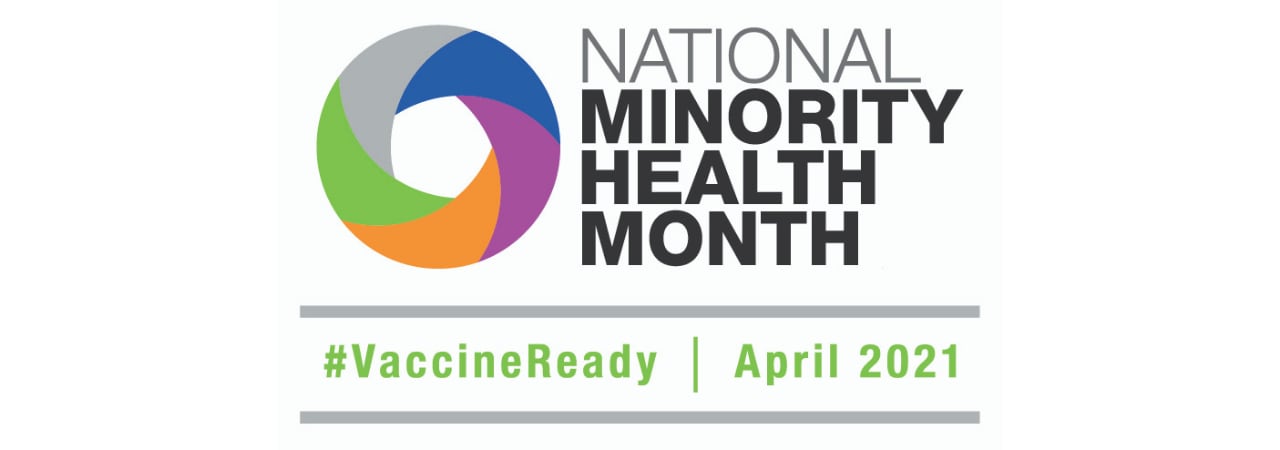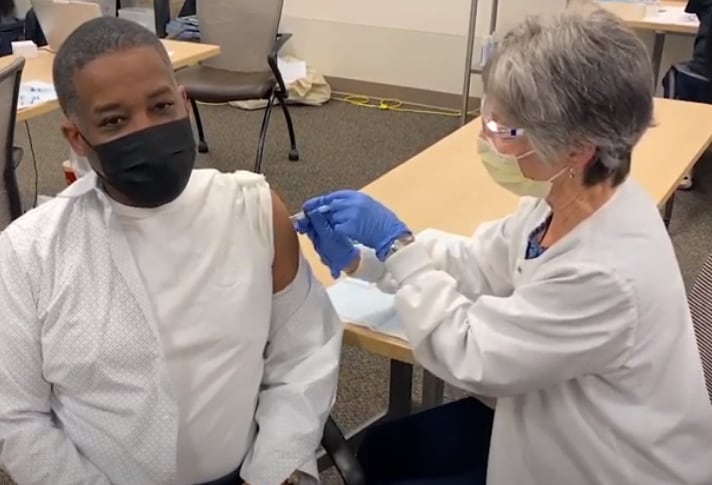National Minority Health Month
 April is National Minority Health Month, a time to raise awareness about health disparities that continue to affect racial and ethnic minority populations and encourage action through health education, early detection, and control of disease complications.
April is National Minority Health Month, a time to raise awareness about health disparities that continue to affect racial and ethnic minority populations and encourage action through health education, early detection, and control of disease complications.
As recognized by the HHS Office of Minority Health, the COVID-19 pandemic has disproportionately impacted racial and ethnic minority communities and underscores the need for these vulnerable communities to get vaccinated as more vaccines become available.
Bronson Healthcare is offering vaccine clinics in Battle Creek, Kalamazoo, Mattawan, and South Haven as well as partnering with the health department and other agencies to get vaccine to all members of our communities. Please register on the COVID-19 Vaccine page on bronsonhealth.com.
 Bronson Healthcare President and CEO Bill Manns says, “As an African American man, I want to encourage you to get the COVID-19 vaccine. I understand the history that we have with our healthcare system. I understand the Tuskegee experiment. I’ve had the pleasure of meeting Henrietta Lack’s grandchildren, and I understand what was done with her and her grandchildren. This isn’t an experiment, this isn’t some bizarre trial, this is important to keep us all safe. Now the hesitancy is real, but I can tell you the solution is real. People are rushing to get this vaccine, our physicians, our caregivers all want this vaccine. This is a great way to protect yourself, protect your family, protect your love ones. It didn’t hurt, the process was quick and easy and I’m feeling great. So do whatever you can to keep yourself safe.”
Bronson Healthcare President and CEO Bill Manns says, “As an African American man, I want to encourage you to get the COVID-19 vaccine. I understand the history that we have with our healthcare system. I understand the Tuskegee experiment. I’ve had the pleasure of meeting Henrietta Lack’s grandchildren, and I understand what was done with her and her grandchildren. This isn’t an experiment, this isn’t some bizarre trial, this is important to keep us all safe. Now the hesitancy is real, but I can tell you the solution is real. People are rushing to get this vaccine, our physicians, our caregivers all want this vaccine. This is a great way to protect yourself, protect your family, protect your love ones. It didn’t hurt, the process was quick and easy and I’m feeling great. So do whatever you can to keep yourself safe.”
Watch this video to see Bill and other Black leaders at Bronson Healthcare speak about why they chose to get the COVID-19 vaccine.
About National Minority Heath Month:
Celebrated every year in April, National Minority Health Month:
- Builds awareness about the disproportionate burden of premature death and illness in minority populations.
- Encourages action through health education, early detection and control of disease complications.
The origin of National Minority Health Month is in the 1915 establishment of National Negro Health Week by Booker T. Washington. In 2002, National Minority Health Month received support from the U.S. Congress with a concurrent resolution (H. Con. Res. 388) that “a National Minority Health and Health Disparities Month should be established to promote educational efforts on the health problems currently facing minorities and other health disparity populations.” The resolution encouraged “all health organizations and Americans to conduct appropriate programs and activities to promote healthfulness in minority and other health disparity communities.”